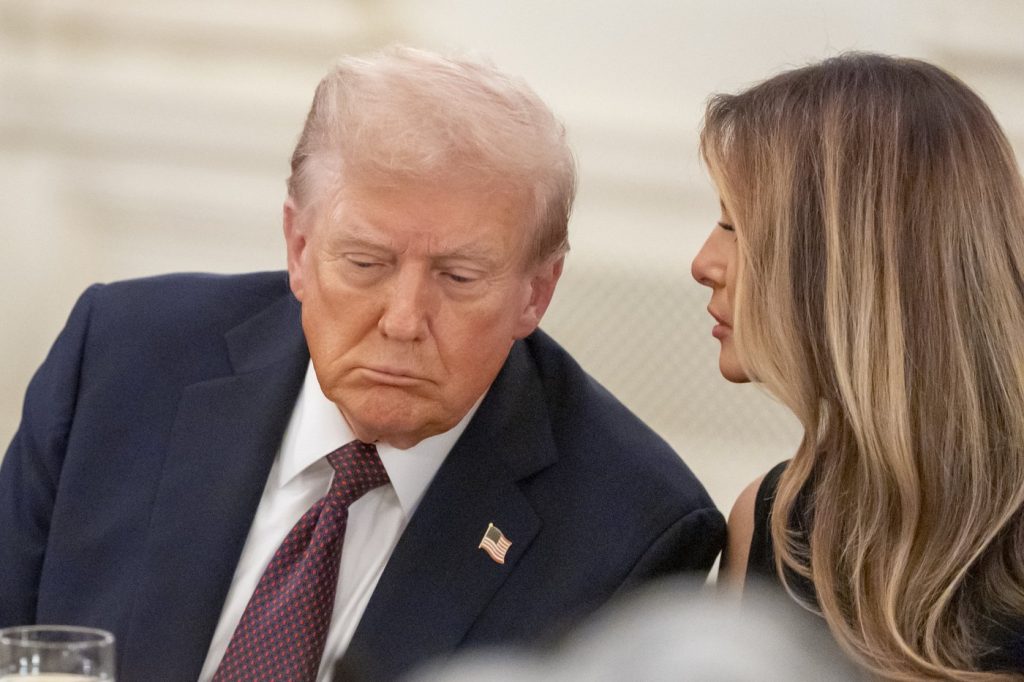WASHINGTON (AP) — President Donald Trump, a former casino owner known for his penchant for deals, often uses a poker analogy to assess his partners and rivals. He asserts that the U.S. possesses superior resources in its international dealings, claiming, “We have much bigger and better cards than they do,” referring to China. In his interactions with Canada, he has similarly boasted, asserting, “we have all the cards.” Notably, during a contentious meeting with Ukrainian President Volodymyr Zelenskyy, Trump stated, “You don’t have the cards,” illustrating his belief in American superiority in negotiations.
This perspective reveals a fundamental aspect of Trump's worldview, particularly as he has sought to expand presidential power in his second term to pursue his interests. Seven months into this period, Trump has weaponized governmental authority against various targets, including universities, media outlets, law firms, and those he personally dislikes. While portraying himself as a victim of a "deep state," he has paradoxically intensified the use of government power against his adversaries.
Supporters of Trump, rather than distancing themselves from his tactics, appear to encourage this approach. David N. Smith, a sociologist from the University of Kansas, notes that Trump's backing stems from voters who relish the idea of the state being weaponized to combat their opposing cultural forces. They are eager to see the government act on their behalf, especially following perceived restrictions placed on Trump during his previous administration.
Trump's utilization of federal power began almost immediately after taking office in January, showcasing a robust push to execute his political agendas. Recently, he invoked a rarely-used law that allows presidential control over law enforcement in Washington, D.C., deploying hundreds of federal agents and National Guard troops across the city. He has also indicated potential deployments to other Democratic-led urban areas, including Chicago and New York.
Furthermore, the president has dismissed a Federal Reserve governor, basing his action on unfounded allegations of mortgage fraud. Trump has threatened various targets: blocking a stadium project for the Washington Commanders unless they reverted to using a racially insensitive name, revoking the security clearances of disfavored lawyers, and cutting federal research funding from universities. His administration has pursued legal action against institutions that have crossed him, such as Columbia University and the University of Pennsylvania, resulting in considerable settlements and resignations from prominent university officials.
Trump has also targeted federal employees involved in investigations against him, dropping corruption charges against New York Mayor Eric Adams to gain his compliance on immigration issues. He has achieved multimillion-dollar settlements in lawsuits against media organizations, deemed weak by many analysts, showcasing his aggressive approach to governance. This behavior reflects Trump’s unique ability to wield executive power effectively, an ability that has not gone unnoticed by his supporters.
Through executive orders and various appointments, Trump has claimed powers that set him apart from his predecessors. His administration has operated with an audacity that has challenged constitutional and legal norms, often disregarding established limits on presidential power. Steven Lukes, a professor emeritus, points out that Trump exemplifies three dimensions of power, notably using “epistemic liberation” to forge his narrative, often fabricating facts without concern for objective truth.
Ironically, Trump campaigned against what he described as the weaponization of government, declaring himself the target of a politically motivated "Department of Injustice." Despite facing numerous legal challenges in 2023, Trump indicated his intention to utilize government power to counter any opponents, asserting, “IF YOU GO AFTER ME, I’M COMING AFTER YOU!” This sentiment was echoed in interviews and public statements, where he suggested he would act decisively against rivals if reinstated in office.
As the election approaches, Trump shifts his narrative, claiming a newfound commitment to ending government weaponization, despite previously pledging to harness it. His assertions about putting an end to government overreach have raised questions about his consistency and commitment to democratic principles, as he seems poised to engage in the very tactics he once criticized.












